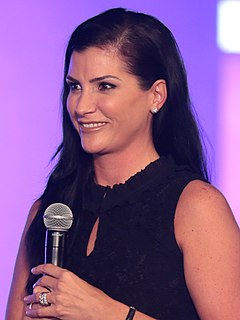A Quote by Michael Porter
Risk is a function of how poorly a strategy will perform if the 'wrong' scenario occurs.
Related Quotes
Stated in the simplest terms, the recognized solution to the problem of foodborne illness is a comprehensive prevention strategy that involves all participants in the food system, domestic and foreign, doing their part to minimize the likelihood of harmful contamination. And that is the strategy mandated by FSMA. It is not a strategy that assumes we can achieve a zero-risk food supply, but it is a strategy grounded in the conviction that we can better protect consumers and the economic vigor of the food system if everyone involved implements reasonably available measures to reduce risk.
I think what we need is better understanding of how to do risk analysis of a CDO, but that they still can perform a very valuable function because they can aggregate these risks and pass them around so that mortgages or other kinds of loans can be packaged and sold to investors all over the world, who in most times, would justify a small amount of each one.
The single most damaging misconception about strategy is that it is a set of financial performance goals. The so-called "strategies" created by many managements are nothing more than three-to-five year financial performance forecasts. They are then labeled "strategy" and shipped off to the board of directors which goes through the motions of discussing how big the numbers are. Strategy is not your aspirations. Strategy is concerned with how you will arrange your actions and resources to punch through the challenges you face.




































